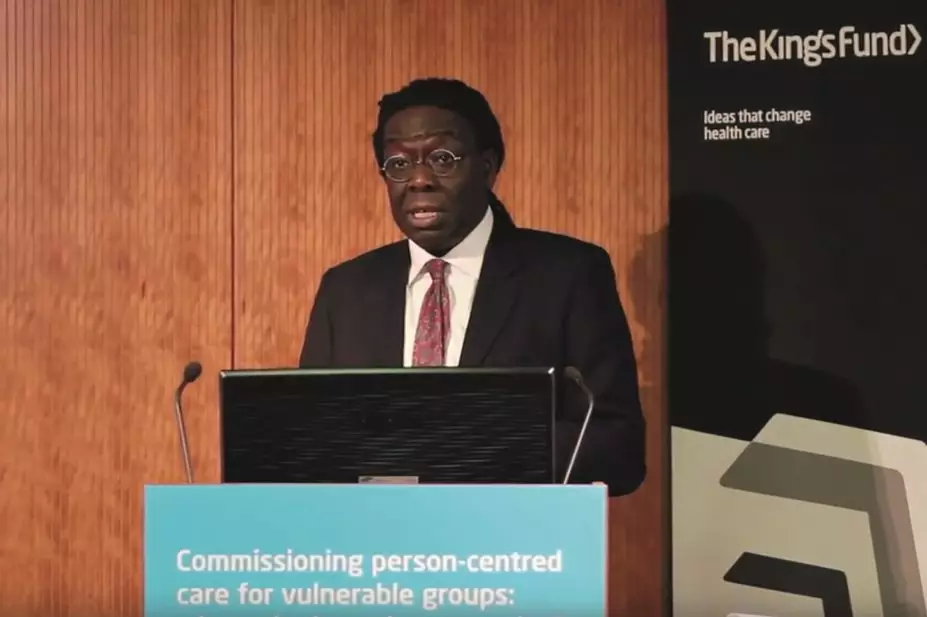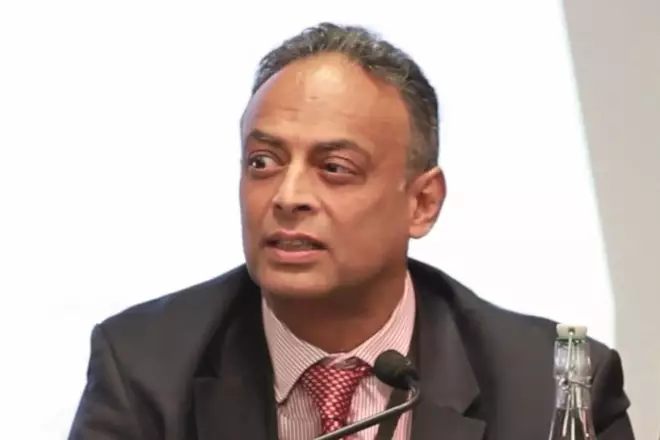
Royal Pharmaceutical Society
“Person-centred care for vulnerable people and place-based [systems of care] are a problem for the NHS, because the NHS is process driven.” This was the view expressed by Lord Victor Adebowale, chief executive of social care enterprise Turning Point, at a joint Royal Pharmaceutical Society (RPS) and King’s Fund event held in London on 24 February 2016.
“We know the process, but what’s the intent?” he asked during his talk about the future of place-based care, a concept in which providers of care work together, collaborating to manage the common resources available to them, to improve health and care for the populations they serve.
“One of the things that pharmacy and organisations like Turning Point [which supports people with complex needs] could be doing is showing the NHS that pharmacy operates where people are,” explained Adebowale. “People experience pharmacy. We could be showing the system what integration, community-based health and social care is from the ground.”
Adebowale’s explained Turning Point’s Connected Care projects. A way of engaging professionals and patients in an area to understand what they have and what they haven’t got in order to design services to specifically meet the needs of the local population. These Connected Care systems have been piloted in 70 different areas. In one pilot, set up in Birmingham, the cost improvements for the city council as a result of this service design were “between £1,956 and £9,812 per person per year”.
“Why aren’t we doing this everywhere?” he asked.
Adebowale asked the attendees if they were involved in vanguard sites, where new care models are being developed to support the improvement and integration of healthcare services. A smattering of people raised their hands. Adebowale said that while he was a “fan” of the new models of care, he was curious as to the extent they were inclusive of the “unusual suspects”.
“One of my tests of real change is that it responds to the shift in need and expectations and that is rarely done by the same people getting together,” he said.
Adebowale explained his interest in the myths of innovation, for example the idea that it has to have two stages, “wrong, you roll it out and practice it at the same time,” he said. “In the NHS, the excellent gets in the way of the good enough, so people don’t get either, because we’re still working on it or we haven’t done the randomised trial.”

Source: Royal Pharmaceutical Society
Ash Soni, president of the Royal Pharmaceutical Society, emphasised the importance of communicating with patients and learning from those who may find it the most difficult to access healthcare services
Ash Soni, president of the Royal Pharmaceutical Society, challenged Adebowale’s ideas of innovation. “One of the most innovative things we can do, is do what we already do well everywhere,” he says. “Being able to share and work collaboratively would make a massive difference and would be innovative.”
Soni also emphasised the importance of communicating with patients and learning from those who may find it the most difficult to access healthcare services. “We need to learn from patients, particularly those with learning disabilities, in order to provide better care for everyone all of the time.”
Shaun Webster, an international project worker for Change, a charity for people with learning disabilities, drew on his experiences as a patient with a learning disability to explain how some vulnerable patients feel when visiting a pharmacy to pick up their medicines. Webster described feeling “stressed”, particularly in situations when the pharmacist was too busy to explain the medication to him. His story highlighted the importance of the question: “Do you need some help with that?” and how communication is crucial, not only for sharing information, but for building trust with patients.
Robert Johnston, chair of the charity Access Matters, agreed in the value of working closely with patients and patient organisations. “If you want to raise the profile of your profession, the sooner you involve patient organisations, the better,” he said, referring to the slogan ‘nothing about us, without us!’ However, he highlighted that all patients should be considered “vulnerable”, even if they don’t fall within specific healthcare groups. “When you’re on the receiving end of healthcare, when there’s something wrong with you, you’re vulnerable.”
But identifying the importance of good communication, whether between patients and pharmacists or between pharmacists and GPs, is not enough, argued Soni. To make it happen, patients must have access to their medical information. “Let them make decisions about who they share it with, when and why – let’s move away from this perception that the information belongs to someone else.”
Marc Donovan, chief pharmacist for Boots UK, said the profession needed to be bolder. “While we need radical solutions, they come with the requirement to have a higher level of change in the profession – change how we use our wider pharmacy family and how our patients see their own health.”
The event brought together patient representatives and healthcare professionals to discuss the role of pharmacy in caring for vulnerable groups. Participants heard from Alzheimer’s UK, the RPS, patient advocacy groups, NHS England and Alistair Burt, minister of state for community and social care.

